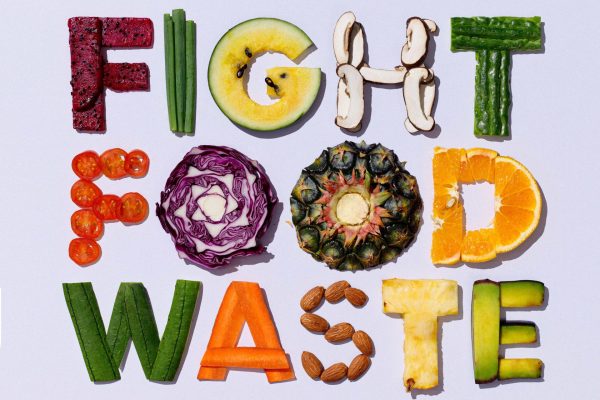In 2019, the 74th United Nations General Assembly designated the 29th of September as the International Day of Awareness of Food Loss and Waste (resolution A/RES/74/209), recognising the fundamental role that sustainable food production plays in promoting food security and nutrition.

Considering the world’s growing population, the United Nations (UN) see an urgent need to address the large quantities of food lost and wasted around the globe, stressing the risks implied for climate change, agriculture sustainability, human livelihoods, and food supplies. Hunger is only one of the consequences of food waste, but many more are associated with it. It is essential to raise awareness about the importance of reusing and preserving food and educate people about how harmful food loss and waste are. Cutting back on food loss and waste is also stated in the 2030 Agenda for Sustainable Development, specifically Target 12.3, which calls for halving the per capita global food waste at the retail and consumer levels and reducing food losses along production and supply chains. “Between 691 and 783 million people faced hunger in 2022.” – the United Nations. The theme in 2023 is “Reducing food loss and waste: Taking Action to Transform Food Systems”. The plan is to involve the public and private sectors in this action and strengthen the food systems.
Why not waste food? (According to the United Nations)
How You or Everyone can help?
Everyone can manage food loss by integrating new approaches that help think differently about food to promote global and local actions. Together, everyone can reduce food losses along food production and supply chains. Moreover, you can use the constantly developing technologies and innovative solutions to manage food quality and reduce food loss and waste. People can help the environment by composting food, keeping food waste from landfills, and joining the awareness-raising of practices and innovations to reduce waste and build a more resilient food system. This day is co-organised by the Food and Agriculture Organization of the United Nations (FAO) and the United Nations Environment Programme (UNEP). They lead events on this day. You can participate, for example, in Brussels, on the 29th of September in Bigh FARM. They organise debates about food waste, guided tours on the farm, learning about zero-waste living with chefs, etc.
CHARM-EU’s commitment to working towards inclusive and just societies.
Food is deeply embedded into CHARM-EU’s Master’s in “Global Challenges for Sustainability”. Students can select a thematic path after the program’s first semester: Life and health, Food, or Water. Students learn and work about food-related challenges and, during the final semester, solve sustainability challenges linked to food alongside stakeholders from business and civil society. We are delighted that the CHARM-EU Master’s programme discusses many human rights perspectives.
Shaping minds and hearts by sharing experiences
CHARM-EU is delighted to share the message of both Viktor Gábor Mihucz Habil. Associate Professor, Department of Analytical Chemistry, Faculty of Science at Eötvös Loránd University (ELTE) and CHARM-EU Food track Knowledge Creation Team member and Eimear Delahunty, Community Development at FoodCloud.
Viktor Gábor Mihucz, Habil. Associate Professor, Department of Analytical Chemistry, Faculty of Science of at Eötvös Loránd University (ELTE) and CHARM-EU Food track Knowledge Creation Team member shared with us:
“Food waste is an integral part of the Food track of the Flexible Phase of CHARM-EU Master: Global Challenges for Sustainability both at theoretical and practical levels through organisation of workshops and field trips. By running the Food track at Trinity College Dublin, CHARM-EU Master’s students and I had the privilege to get first-hand experiences about the FoodCloud Initiative FoodCloud: Food waste hurts our planet set up with the financial support of TCD Launchbox programme, on redistribution of food surplus to people in need. Eimear Delahunty, community development manager at FoodCloud shared with our students how volunteer initiatives grow the social good in communities across the country and enable more food to be rescued. In return, as Food track facilitator, I always tried to emphasise to our students that sustainability has another perception in a post-communist country than in Western Europe. Initiatives like production of methane through anaerobic decomposition of communal waste at the waste Management Center at Pusztazámor for energy production, that we visited with our students, are welcome but they cannot substitute the desirable food waste reduction strategies to achieve the corresponding SDG goal formualted by the UN. I am confident that our CHARM-EU students could contribute in the future to find and implement the right solutions.”
Eimear Delahunty, community development manager at FoodCloud, has explored a personal interest in culture, human rights and social justice through his work and studies and shared with us:
“Today reminds us that as an interconnected and interdependent Global Community, reducing food loss and waste presents a shared opportunity for immediate climate benefits while improving the overall sustainability of our shared food systems – a necessary transformation to ensure better planetary and nutritional outcomes for current and future generations.”
Join the awareness-raising by using hashtags: #lowimpactliving #zerowastelifestyle #zerofoodwaste #stopfoodwaste #greenfuture #reducefoodwaste #wasteless #wastefreeliving #sustainablefood #reducewaste.
Sources:
Credit:
The contribution was prepared by Henrietta Ágnes Sudár, student volunteer of ELTE BGGYK in collaboration with Eimear Delahunty, community development manager at FoodCloud, Viktor Gábor Mihucz, Habil. Associate Professor, Department of Analytical Chemistry, Faculty of Science of at Eötvös Loránd University (ELTE), Agnes Sarolta Fazekas-Vinkovits, Leader of CHARM-EU Inclusiveness (Diversity, Equity, and Inclusion) Team.